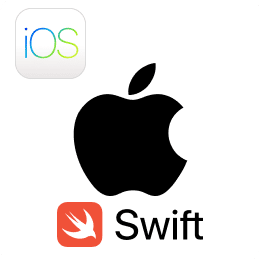Landing Page Converts better
Thanks for the incredible landing page!
Home » Mobile Application Planning, UX & UI Development
Over 3.2 billion people use mobile devices worldwide, checking their phones every 12 minutes on average and spending 88 percent of their time in apps. We at LeadAdvisors understand the power of mobile and have a thorough understanding of mobile app development. Continue reading to learn how to take advantage of this wealth of advantages!





Our talented developers do whatever it takes to design your new mobile app, whether it’s native, cross-platform, or a Progressive Web App (PWA).
Native mobile apps are designed for specific platforms, including iOS and Android, and are downloaded via app stores onto mobile phones. They are created in a platform-specific programming language and will not work on other devices. Native apps are the most common type of mobile app since they are quick, responsive, dependable, and functional.
This strategy is perfect for you if you want a mobile app that works on many platforms and devices but doesn’t want to spend money on designing for two platforms at the same time. Different frameworks and tools can be used by mobile app developers to create cross-platform mobile apps with reusable code and exceptional functionality across platforms.
PWAs are a form of a web app that combines the functionality and accessibility of web applications with the dependability of native mobile apps. This method of mobile app creation combines the perfect blend, providing a smooth experience and a clean UX/UI while reducing the cost and time of proprietary software development.
Native mobile apps are designed for specific platforms, including iOS and Android, and are downloaded via app stores onto mobile phones. They are created in a platform-specific programming language and will not work on other devices. Native apps are the most common type of mobile app since they are quick, responsive, dependable, and functional.
Faced with a new normal, today’s businesses must modernize their operations, foster innovation, and become more agile. This may necessitate condensing years of change into months.
Faced with a new normal, today’s businesses must modernize their operations, foster innovation, and become more agile. This may necessitate condensing years of change into months.

It is critical to have solid web development to compete in today’s corporate world. This entailshaving modern, up-to-date applications that can handle the market’s ever-changing demands. At LeadAdvisors, we specialize in helping companies with their web development needs so they can stay ahead of the curve.


Creating business by customizing contributions with cutting-edge technology solutions that are both agile and future-proof, developed through LeadAdvisor’s platform, allows you to stay aheadof the competition.
To achieve a faster time to value, take a product-centric approach that leverages our deep domain expertise and modern engineering principles. Create tailored, domain-specific solutions to meet your specific needs.

The quality of leading mobile app development businesses is only as excellent as their coding technique. There are protocols and procedures at LeadAdvisors to ensure seamless and consistent delivery on schedule and within budget. Consider how we’ll tackle your future mobile app development project.


Best app development companies always recommend starting with an MVP, or minimum viable product, to swiftly check business concepts, improve UI/UX designs, and gather user input in order to prepare for the entire process.


Our developers focus on the maintenance and support phase after app development and the proper launch of a custom mobile app. We offer comprehensive services such as bug fixes, reactive development, and feature additions that improve the user experience.
Mobile app technology is a global key that can be used in a variety of industries. Here’s a quick rundown of some sectors that have already benefited from our mobile knowledge. In your app shops, you’ll find a plethora of these!
Decrease time-to-market by industrializing application advancement through automation, intellectual property (IP), open-source, low-code/no-code principles, and third-party system technologies.
Create APIs that allow seamless integration and data/workflow transformation between applications. You can reduce time to market and increase enterprise agility by using flexible application architecture and a configuration-driven approach.
Modernize your applications, increase technical value, take advantage of cloud-based development, and make your portfolio digitally ready.
Use a platform-driven cloud migration strategy to ensure that applications are digitally preparedwhile ensuring elastic scalability, agility, and cost-effective transformation.
Using a fully automated, tools-based approach, modernize legacy applications and their ecosystem to a cost-effective modern platform.
Gain scalable, IP-based, platform-driven optimization and transformation enablement services with predictable outcomes.
Reduce your “run” spend by tailoring your strategic application plan to different application necessities and fueling change innovation. This type of management generates business outcomes that allow digital transformation while lowering costs and increasing predictability.

Landing Page Converts better
Thanks for the incredible landing page!

Thanks!
Very responsive and efficient! Delivered on time, highly recommended!

I was burnt before by another agency but Anthony introduced us to great email marketers & I never thought we would get our revenue 5x more after 14 months of development and optimization. I can’t thank you enough, guys!

I wish I signed on with them sooner!
Thanks a lot for your great service with awesome pricing

I wish I signed on with them sooner!
Over the course of 8 months, they have scaled my business to the point of spending $50,000 a day on my social ads and we are only looking to spend more because of the ROI we are getting.

Great Experience
I had a very pleasant experience working with Lead advisors.
Native mobile app design and development is tailored to a specific os and its capabilities. Users can download them from app shops like the Google Play Store or Apple Store. These programs can have immediate access to the device’s hardware, such as the camera, GPS, and microphone, and execute more quickly, resulting in a better customer experience.
Web applications are cross-functional applications that build web apps using developing browser APIs and feature a native-app-like user experience. Progressive Web and mobile app development adheres to standard progressive enhancement tactics and is a more dependable way to interact with your consumers since they load quickly and respond quickly to user queries.
The backend of a mobile app is a server-based module that does basic data processing and helps display content on the front-end or app UI, enabling the app’s main functionality. Databases, Servers, middle bases, and other components are included.
API administration entails creating and distributing application programming interfaces (APIs), managing access, collecting and analyzing application usage information, and generating performance management reports.
APIs are being used to make the proposed framework more modular and interoperable with other programs. In the total application lifecycle, API management is a great method. It allows an application’s abstraction levels to be upgraded, resulting in better integration and a competitive value.
Yes, APIs and API management, in general, enable businesses to update their existing IT application environment and provide a consistent user experience, such as safe single sign-on and the integration of commercial-off-the-shelf products into an agile and resilient corporate architecture.
| Cookie | Duration | Description |
|---|---|---|
| cookielawinfo-checkbox-analytics | 11 months | This cookie is set by GDPR Cookie Consent plugin. The cookie is used to store the user consent for the cookies in the category "Analytics". |
| cookielawinfo-checkbox-functional | 11 months | The cookie is set by GDPR cookie consent to record the user consent for the cookies in the category "Functional". |
| cookielawinfo-checkbox-necessary | 11 months | This cookie is set by GDPR Cookie Consent plugin. The cookies is used to store the user consent for the cookies in the category "Necessary". |
| cookielawinfo-checkbox-others | 11 months | This cookie is set by GDPR Cookie Consent plugin. The cookie is used to store the user consent for the cookies in the category "Other. |
| cookielawinfo-checkbox-performance | 11 months | This cookie is set by GDPR Cookie Consent plugin. The cookie is used to store the user consent for the cookies in the category "Performance". |
| viewed_cookie_policy | 11 months | The cookie is set by the GDPR Cookie Consent plugin and is used to store whether or not user has consented to the use of cookies. It does not store any personal data. |
Speak to Our Experts
Please fill the form below.